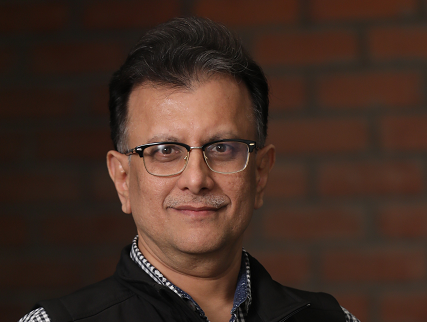
Yagnesh Sanghrajka, co-founder and CFO at 100 X. VC discussed with ETCFO the outlook for venture capital firms in the backdrop of recession talk. He said the early-stage startups’ story remains intact and shared that his firm has plans to deploy Rs 125 crores in 100 startups (Rs 1.25 crore cheque for each startup), and these investments will be sector agnostic, he added. 100X. VC is a venture capital firm. It has invested in 80 companies (till April 2022) deploying a total of $60 million. Edited excerpts from the CFO’s interaction.
Q: How many startups are you looking to invest in in the next 12 months and how much amount do you plan to put in those companies?
Yagnesh Sanghrajka: We are looking at investing Rs 1.25 crore each in around 100 companies in the next 12-15 months for 15 per cent future equity ownership using I-SAFE notes. (iSAFE” stands for India Simple Agreement for Future Equity that allows an investor to make a cash investment in return for a convertible instrument.)
Our class 9 applications are already open. We will put investments in areas like metaverse, web 3.0, agritech, healthtech, insurtech, D2C space etc, but the fund will be largely agnostic. We would focus on capital-light businesses..
A plethora of opportunities exists today. We are well on track to achieve our target of investing Rs 125 crore odd in a total of 100 companies. Also to give a relative picture, in the last (calendar) year 2021, we had funded about 40 companies.
Q: Are you planning to slow down the pace of your investments as recession fears grip the world?
Yagnesh Sanghrajka: The pace of investments will likely be the same. The government’s efforts are encouraging the formation of new-age startups and spurring more entrepreneurs from across India to solve customer problems.
Despite global recession murmurs, India seems to be relatively better placed to tackle the headwinds. We foresee high levels of growth for India in the next ten years. The early-stage startup space is emerging as an alternative investment class. Their party has only begun, and more exciting times lie ahead..
Q: What is your view on frothy valuations in the startup ecosystem?
Yagnesh Sanghrajka: The question of valuation comes at a much later stage. Frothy valuations are seen more for well-funded startups which are in the growth phase. We are mainly catering to companies at the bottom of the pyramid. We provide pre-seed and seed investments. We are quite bullish on this early-stage ecosystem. Q: You are a part of the investment committee which decides on investments. How do you decide?
Yagnesh Sanghrajka: We decide on our investments by looking at the founding team, the market size opportunity, and the business model strength, among other factors. The key question is how good a founder is or how able s/he is.
Q: Is profitability a question here?
Yagnesh Sanghrajka: We largely fund pre-seed or seed stage rounds and here most of the companies are not profitable. The companies are either building their products or just have finished building their products. Entrepreneurs at this stage are actually building businesses, trying to get to people for more traction. The question of profitability comes in at a much later stage when they have already clocked sizable revenues. Profitability is therefore not the metric, at least in the pre-seed and the seed stage.
Q: What is your biggest challenge when you make investment decisions? And how do you overcome it?
Yagnesh Sanghrajka: The challenge in investing early-stage startups is that one never gets a fully functional deal. That it is difficult to find a business with sound market economics, a strong model, and a founding team with financial understanding. But that’s the reason mentoring and financial hand-holding are required, and companies like ours come into play. Sometimes the tech founders have a limited understanding of fiscal prudence, and imbibing fiscal prudence in them does become a challenge. But we have a very strong mentoring team of high-quality CFOs and other leaders that help us overcome this challenge.
Q: Does being a founder with financial expertise make it easier for you to put investments into?
Yagnesh Sanghrajka: If a founder has financial experience, it certainly helps tick more boxes than someone who does not have it or takes a lot of time in terms of learning it.
Credit: Source link


Comments are closed.